INTRODUCTION
TRUTH THROUGH SOCIAL NARRATIVE
WHAT EXACTLY IS THE TRUTH?
The Emperor’s New Clothes
Back in the early 1800s, the popular Danish story-teller Hans Christian Anderson told a story – “The Emperor’s New Clothes” – about how not only a vain king but an entire society was tricked by swindlers into believing that they were amazing tailors able to create a fabulous outfit for the king … so fabulous indeed that it would be invisible to anyone not fit for high office – or anyone who was just incredibly stupid. The king, not wanting to fall into the category of “stupid” – and at great cost to himself – bought the deal.
So the tailors proceeded to create for the king a set of clothes of materials so grand that supposedly they could not be seen by the ordinary eye. In fact, they were producing nothing at all but a huge scam.
But those courtiers around him bought the same deal … and for the same reason – not wanting to find themselves in the “stupid” category. And for that matter so did those of his kingdom who turned out for the grand event of seeing the king walk through the city streets in display of his new clothes.
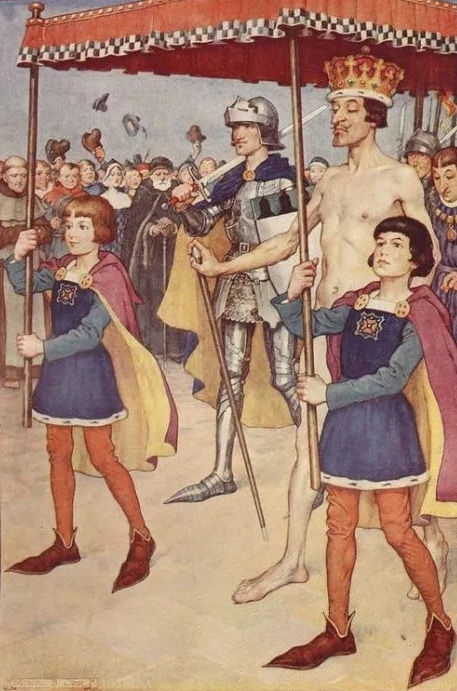
But then they were in the process of wildly applauding him and his clothes when a child – not yet aware of the “truth” the swindlers had used to conduct this scam – was moved simply to call out loudly that the king in fact didn’t have anything on at all. Thus it was through the observation of a simple individual who had not bought into the collective “group think” that truth finally was able to come to light.
American “group-think” in trouble
I like this story because it is so telling of the dangers of “group-think.” Of course group-think is quite natural to us humans … because ultimately it forms the foundations of all social orders. We as humans would not come together as powerful social creatures – the most powerful creatures on this planet – without such group-think. Thus the problem is not group-think itself. It’s the way such group-think works with reality … or not. In short, group-think can be quite good, quite necessary for human success. Or it can be quite horrible. Again, the good or the bad in such group-think depends on how well it works for a people in bringing them together to deal effectively with real challenges facing them.
Actually, I really don’t prefer to use the term “group-think.” I like the term “worldview” – or sometimes “religion” or “science” – in reference to how it is that we understand the world and its ways … and what it is that we believe that we collectively should be doing to interact effectively with that larger reality. Worldview or religion or science are thus ultimately about what we believe to be true about life and how it works. And these understandings too can be either very good, or quite destructive.
I write this material you are now reading because I am very much like the child who sees scam – political scam – so much at the heart of what American politics has become of late. And like the events of the 1800s which ultimately plunged the nation into a horrible civil war between two American social-cultural subsets (the North versus the South or Free-States versus Slave-states) with differing – actually opposing – worldviews, I see the nation today dividing deeply over a number of issues that are no more than the emperor’s clothes … hot political issues that excite the public domain – but have little to do with the real issues facing the nation. All these political issues do is offer the “socially ambitious” various ways to use a growing Left-Right division within the American worldview to build their careers at the heart of American social attention. This is definitely not a good thing! And this division can become quite brutal if it is not called out … like the child exposing the lack of truth in his world of group-think. And thus, like that child, I write this call to “Wake Up, America!
SOME VERY BAD AMERICAN GROUP-THINK GOING ON TODAY
Racism. There is no question that racism has been a terrible problem in this country … over a very long time. We fought our bloodiest conflict ever over that matter in the 1860s. And although that war ended slavery, it did not end social discrimination in the way we Americans looked at a person’s skin color … although we finally began to take on this matter a century later (the 1960s). But now it seems that racism has been countered not by an end to racism … but by a new version of racism. According to a newly rising worldview, the Black world needs to be given special preference in its standing in the American world. As we shall see, standing not on the basis of personally achieved merit but on the basis of assigned social status usually results only in weakening the real powers of those it is intended to give special privileges to.
Immigration. There is also no question that America is a society of immigrants … and their offspring. Crossing the Atlantic to come to America – and take up a difficult role in the working world – took a lot of fortitude for those who came. But it was allowed to happen quite officially (although local cultural sensitivities could become quite heated in the process) … but under some degree of regulation (Ellis Island).
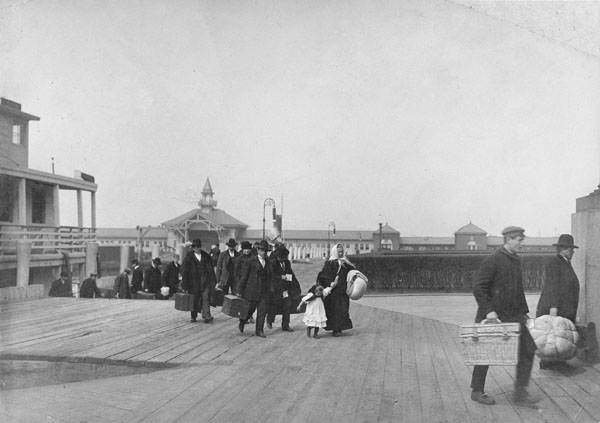
But of late, the process has become one simply of flooding millions of people across America’s southern borders (some also from Canada) … with little opportunity to have some social control over the process. Indeed, some cities – for political reasons – have offered “sanctuary” to undocumented immigrants … in defiance of national authorities trying to gain some measure of immigration control. Now the anger of numerous Americans has reached the point where they demand that such immigration be brought to a halt … making even the legal process of gaining American citizenship now increasingly difficult.
True, criminals, gangs, and cartels have used America’s open borders to get into the country. But so have the many immigrants willing to take on the very tough but highly-needed jobs in American industry. So … the flow simply needs to be brought under wise control … not directed by political hysteria.
Sexism. America was built not on the powers possessed by a privileged ruling class … but on the civil powers assumed locally by American families – and their local organizations – especially their churches, led by pastors who kept them on a weekly basis (their sermons) focused on their local responsibilities. In short, the power base of America was the family and the church working together in the conduct of local life.
The American family traditionally involved a distinct division of responsibilities between the father and mother. The father was responsible for gaining the family’s income from his work in the community … and indeed in general his social-political role in that community. The mother’s job was to oversee life inside the family itself, food, clothing, health care … and even early education (public schools taking over the educational role in a child’s later years).
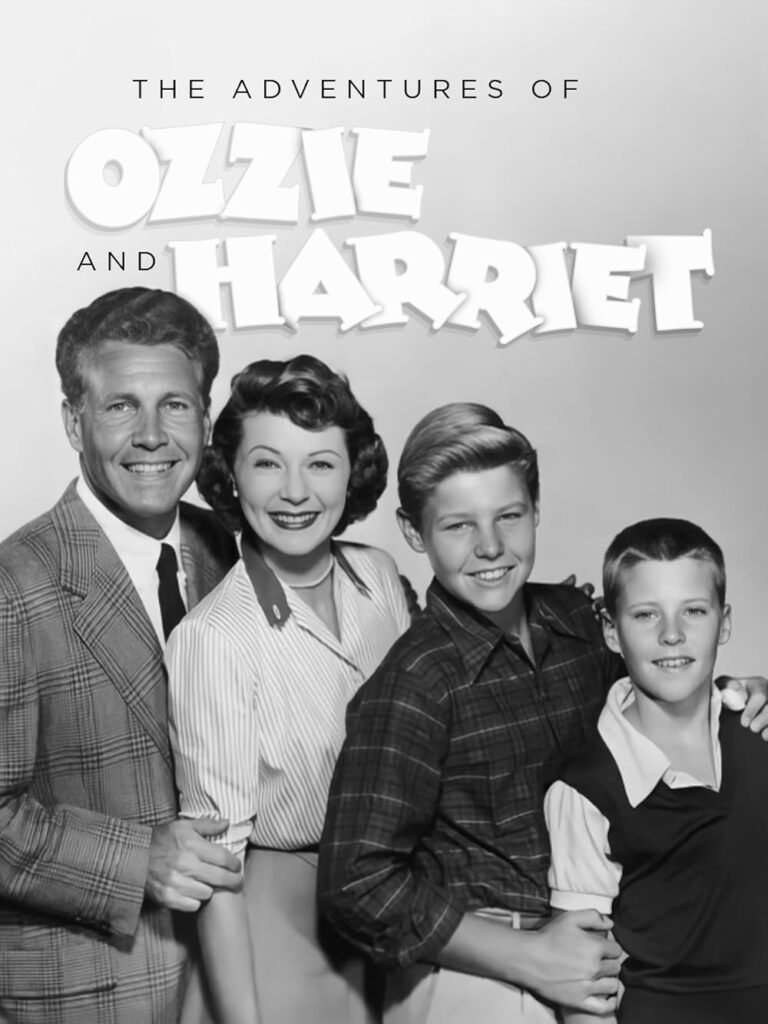
SECULAR-HUMANISM PRETENDING TO BE A NEW “SCIENCE”
We would all like to believe through our own careful thought, through our own reasoning, that we can discover life’s fundamental truths. That would be a beautiful thing … if it were true … or a realistic possibility. Yes, there is much about life that our minds can bring a high degree of understanding to … especially in the material or “secular” world of physics, chemistry, and biology. In so many ways, Creation itself is a very orderly thing … and thus able to be brought to understanding through careful scientific research.
Unfortunately, human behavior – unless tightly disciplined by social authority – does not work on a similar material or orderly basis. It is creative, impulsive, emotional … and often very dangerous to human life itself. In any case, there is no way that a society can be brought to truth the way the material world has been studied: through selective laboratory research. You simply can’t experiment with societies.
But social philosophers do love to try to bring human behavior to such “scientific” truth. For instance, Locke’s Two Treatises on Government and his Essay Concerning Human Understanding (late 1600s), Rousseau’s Social Contract (mid-1700s), Hegel’s Phenomenology of the Spirit and his Science of Logic (early 1800s), would have a tremendous impact on the Western world’s social behavior … at least in getting action on the part of people who believed their theories to be scientifically true. Certainly Locke inspired some useful changes in English politics … and Hegel helped Germany decide that it was time to unite as a single society. And Rousseau inspired the French Revolution … which sadly turned into a bloody disaster. They were “useful” writings in terms of prompting believers of their social theories to take social action. But they were hardly truths in themselves.
But the human intellect cannot bring its tendency to want to “play God” to life by being led by dreams that somehow human reason is itself a path to truth … something Christians have long termed as “original sin.”
Think of the matter this way. How is a jury supposed to come to understand the “truth” of a court case, when opposing lawyers are using clever and quite “rational” representations of the truth (“reason”) to win their case? Reason and truth are definitely not the same thing.
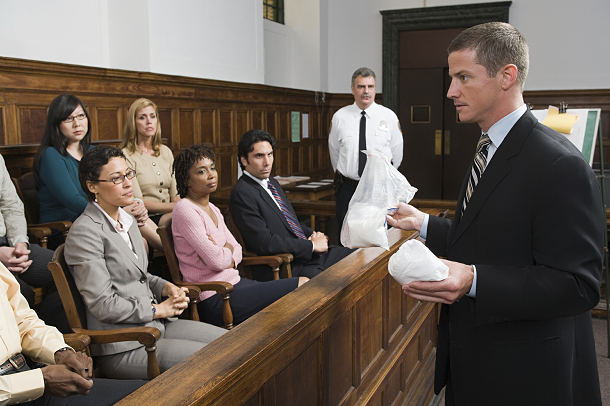
Ben Franklin’s take on the matter
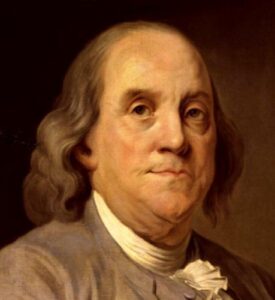 Another example of reason and truth finding themselves in deep contention was the meeting of the thirteen newly independent American states, gathering in Philadelphia in the summer of 1787 to put together a new constitution, one that would federate them as a new “United States of America.” Big problems presented themselves in this enterprise … because the states were not of an equal size, they had different cultural instincts, and they were in no mood to surrender their state sovereignty to a new political union that might work against their own states’ interests.
Another example of reason and truth finding themselves in deep contention was the meeting of the thirteen newly independent American states, gathering in Philadelphia in the summer of 1787 to put together a new constitution, one that would federate them as a new “United States of America.” Big problems presented themselves in this enterprise … because the states were not of an equal size, they had different cultural instincts, and they were in no mood to surrender their state sovereignty to a new political union that might work against their own states’ interests.
Finally, after about a month of endless debate, Ben Franklin rose to address the group with a call for a specific action, one that he understood was vitally needed if they were to succeed in this venture. It is worth quoting in full (from Madison’s notes that he recorded over the course of the conference) … because it reveals much about how this very wise American sage understood this matter of getting at the truth.
Mr. President
The small progress we have made after 4 or five weeks close attendance & continual reasonings with each other, our different sentiments on almost every question, several of the last producing as many noes and ays, is methinks a melancholy proof of the imperfection of the Human Understanding.
We indeed seem to feel our own want of political wisdom, some we have been running about in search of it. We have gone back to ancient history for models of Government, and examined the different forms of those Republics which having been formed with the seeds of their own dissolution now no longer exist. And we have viewed Modern States all round Europe, but find none of their Constitutions suitable to our circumstances.
In this situation of this Assembly, groping as it were in the dark to find political truth, and scarce able to distinguish it when presented to us, how has it happened, Sir, that we have not hitherto once thought of humbly applying to the Father of lights to illuminate our understandings?
In the beginning of the Contest with G. Britain, when we were sensible of danger we had daily prayer in this room for the divine protection. Our prayers, Sir, were heard, and they were graciously answered. All of us who were engaged in the struggle must have observed frequent instances of a Superintending providence in our favor. To that kind providence we owe this happy opportunity of consulting in peace on the means of establishing our future national felicity. And have we now forgotten that powerful friend?
I have lived, Sir, a long time, and the longer I live, the more convincing proofs I see of this truth that God governs in the affairs of men. And if a sparrow cannot fall to the ground without his notice, is it probable that an empire can rise without his aid?
We have been assured, Sir, in the sacred writings, that except the Lord build the House they labour in vain that build it. I firmly believe this; and I also believe that without his concurring aid we shall succeed in this political building no better than the Builders of Babel: We shall be divided by our little partial local interests; our projects will be confounded, and we ourselves shall become a reproach and bye word down to future ages. And what is worse, mankind may hereafter from this unfortunate instance, despair of establishing Governments by Human Wisdom and leave it to chance, war and conquest.
I therefore beg leave to move, that henceforth prayers imploring the assistance of Heaven, and its blessings on our deliberations, be held in this Assembly every morning before we proceed to business, and that one or more of the Clergy of the City be requested to officiate in that service.
He well understood (as ultimately did the delegates themselves – who had just survived a massive war, defending their collective political independence) that the Creator who designed all Creation – the beautiful material Creation that their fast-rising science was quickly discovering – was just as much the designer of the more dynamic human outcomes. And if the delegates were willing to rise higher than their logical arguments, and look to this Creator and his directing hand, they would finally arrive at the goal that they so hungrily sought. But to continue to thrash around in their self-serving human logic, they would get nowhere.
Divine Guidance, not human cleverness was the only way to go … as much of America had done for the previous century and a half. It was that Divine Guidance that had brought America to success by the late 1700s … and would continue to do so as long as they stayed on course with God. Franklin knew this with great certainty. So did the delegates. And thus they ultimately succeeded in their constitution-making venture.
Now we Americans today find ourselves in something of a similar situation … when we are constantly fed self-serving ideology, pretending to be the truth, in ongoing political discussions in high places (including the Federal courts), over the media, over our beloved web pages.
Indeed, the Courts have made it quite illegal to bring the same voice of the Creator into our public education … and are doing everything possible to shut it down in all public life because Franklin’s Constitution has supposedly erected a “wall of separation” between Church and State. That of course is a huge betrayal of the original intent of the Constitution. But it sells well today … like the Emperor’s clothes.
TRUTH AS HISTORICAL NARRATIVE
I am, by all training and experience, a political scientist first and foremost.*
But, as I have already pointed out, every scientist needs a laboratory to do serious research in his or her field. But for any political or social scientist, trying to undertake laboratory work on societies is virtually impossible. You simply can’t conduct experiments on societies (small group studies do help somewhat however). So where do you go to get facts or social laws?
And the answer to that question is quite simple: history. I came to value the study of history as a political scientist years ago when I found that ancient narratives were very revealing of certain human social patterns that I could see unfolding before me in today’s world. And those patterns seemed to be pretty much the same … no matter what the social context, here or there, then or now. And those patterns as social laws or “truth” seemed to be unbending, unchanging … as any law of science would be.
I also looked far and wide in my search for data … only to discover that I was hardly the first to do so.
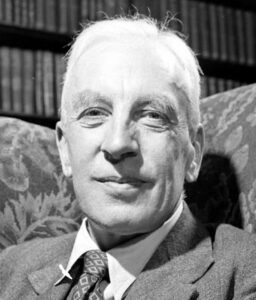 Toynbee. The British historian Arnold J. Toynbee became quite fascinated by this same dynamic, and in a period running from 1934 to 1961, undertook the study of some 28 different civilizations or societies, to see what was behind the rise and fall of those societies. And in that time period he published his results in the form of 12 volumes, A Study of History.*
Toynbee. The British historian Arnold J. Toynbee became quite fascinated by this same dynamic, and in a period running from 1934 to 1961, undertook the study of some 28 different civilizations or societies, to see what was behind the rise and fall of those societies. And in that time period he published his results in the form of 12 volumes, A Study of History.*
What concerned Toynbee in particular was how societies or civilizations had a very difficult time staying on course with the sense of purpose and accompanying moral guidance that originally brought them into existence and had produced their growth. They tended, over time, to wander from those.
This was particularly the case when their leaders, faced with ever-new social challenges, usually in the form of clashing group interests forming within a society, would want to develop quite rationally very clever and thus supposedly greatly “improved” or “progressive” ways of going at things. In doing this, these leaders were calling on their people to abandon their own traditional and well-tested moral legacy, one designed originally to guide and support a strongly united people in their pursuit of their society’s larger sense of social purpose.
Ultimately, this would leave the people no longer depending on their own personal moral structuring to guide themselves through life, but instead, in order to live under any sense of order, in deep dependence on the new social-moral discipline offered by these innovative leaders.
But this changing political-moral relationship between the people and their leaders would change the very moral character of a society’s leadership itself, the leaders no longer merely inspiring the people to take proper action but now having to actually dictate such social behavior. Most unfortunately, this would in turn empower such “progressive” leadership to the point that politics would become a game they would play, for the privilege of being the individuals occupying such positions of power and influence.
At this point, social politics was no longer a matter of how to best serve society, but instead how to best serve particular leaders, and their support groups, most importantly well-armed troops or police. With that, a society has now lost its way, and is headed to disaster.
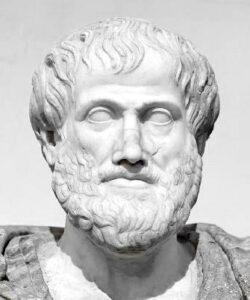 Aristotle. Even ancient Aristotle came to his incredibly accurate observations about social dynamics by simply looking at the historical record … such as he was able to obtain in his days (300s BC). And what amazed me (and many before me) was how “right on” he was about what made for good and what made for bad government or society.
Aristotle. Even ancient Aristotle came to his incredibly accurate observations about social dynamics by simply looking at the historical record … such as he was able to obtain in his days (300s BC). And what amazed me (and many before me) was how “right on” he was about what made for good and what made for bad government or society.
He was quite curious about how societies had their ups and downs, particularly since his own Athens was, at the time, clearly on a downward path socially (early 300s BC). In his works Politics and Nicomachean Ethics, he too looked at a number of societies to see what was behind such social dynamics.
In doing so, he came to discover that the difference between the good society and the bad society was not found in some kind of physical configuration of a society, the kind of thing that most social planners typically focus on in their effort to redesign a “better” social structure for their society. To Aristotle, whether a society was governed by a single person (monarchy), or by a few privileged lords and masters (aristocracy), or by the common people of society (democracy), was not the critical matter in the good-bad dynamic. It was how morally they ruled, whether that rule was by the one, the few, or the many … that is, how well whoever it was that was ruling stayed on course, working on the basis of the moral foundations (the foundations on which are built a society’s defining sense of purpose, its social discipline, and its motivation) that their society was founded on and developed from.
Wow! Social morality was not just a nice feature of society. It was central to a society, to be defended at all costs, and not be played with by creative political minds.
The Roman example. A perfect example of this dynamic was ancient Rome, a society which built its enormous political strength on its Republican Constitution, well formulated in the 12 huge bronze tablets posted in the Roman Forum. Everyone knew their rights and responsibilities as Roman citizens quite well on the basis of those tablets.
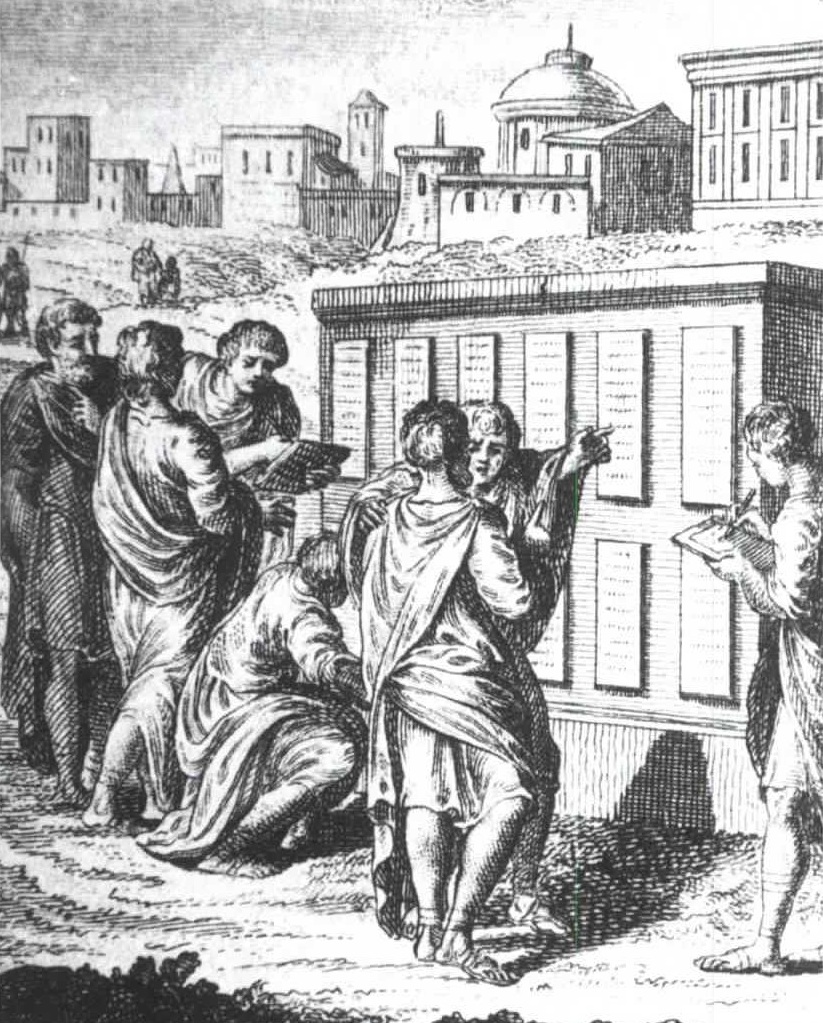
And Rome built and enlarged itself on the basis of opening full citizenship in its society to many of those it conquered, Rome thus defined not by the interests of some particular social group, but by the laws that an ever-expanding (and ultimately massive) Roman citizenry agreed to live by. And thus it was that Rome became a truly great society.
But eventually political intrigue, which increasingly pitted various social classes against each other, led to the idea of “constitutional reform,” always along some new “rational” line of political thinking offered by one or another well-meaning “reformer. But soon all political leaders, like clever lawyers, had their own “rational” ideas about how Rome was to be governed, principally “from above” now that the old Constitution was in essence being set aside. At this point, Roman law was no longer fixed in bronze, but in human willfulness.
This threw confusion rather than clarity into Rome’s attempt to respond to rising political challenges, until matters were solved simply by military leaders (imperators) taking charge of Rome’s political dynamics, on the basis of their strong military position (backed by their legions of Roman warriors). Thus it was that the Roman Republic, originally owned and governed by the Roman citizens themselves, became the Roman Empire, ruled by imperators (emperors), and their armies.
That sort of settled things for a while. But eventually poor imperial leadership, and constant fighting among these military leaders for the privilege of being emperor undercut deeply Rome’s moral foundations. And the offering by these new emperors of public charity (“bread”) and cruel entertainment (“circuses”) to the now powerless Roman citizens, to gain their support, did not serve to rebuild Roman social power.
Eventually Rome was overrun by a relatively small number of Germanic troops, ones who had actually served in the Roman military, when it became clear how morally broken Rome was.
Consequently, it is extremely important for any society to continue to understand and value the moral system it inherited. It has obviously proven itself in the way it has brought that society to success. It needs to be continued, to be passed on to future generations.
My own Four-Generations model of social dynamics. Back in my days as a political science professor, I developed a story of four generations of a leading, guiding, governing family – and of the society they were supposed to be directing … and that society’s rise and fall across those four generations. It is a model that I found, tragically enough, to be very accurate in describing what generally happens in history … and can happen to us if we do not learn from it.
The First or founding Generation is headed by a young man hungry for honor − and willing to work hard, possibly even die, to see that sense of honor put in place … a role he feels called to by the very divine powers that preside over all of life. And he is able to recruit and bring under strong discipline a group of followers willing to join him in that very enterprise. And their timing is awesome, because it takes place at the same time that a neighboring civilization – one they are bent on conquering – is undergoing deep social-moral decline. And indeed, they succeed most gloriously in the task of conquering that very civilization.
The son of the Founding Father, Generation Two, grows up alongside his father, learning the art of war, although by the time he reaches adulthood, his task is more a matter of maintaining a new legal order that his father has just put in place than in gaining new territory. His father has wisely seen that his son should also learn at an early age the ways of the higher civilization his family has just come to control (sort of like Alexander the Great being sent to study in Athens by his Macedonian father). This serves greatly the father’s intentions to have his son eventually rule or administer the political order that is now his family’s responsibility … in conjunction with local dignitaries that will serve as highly respected assistants under this new social-moral order.
The Third Generation is actually not born and raised in the wilderness, but instead in a palace, from his early age a self-understood nobleman of the highest social order. Politically speaking, there is not a lot to do by way of innovation and development … just the boring task of keeping the presiding moral order continuing on its usual basis. But a realm of opportunity can be found in further refining the artistic tastes of his realm: new palaces, new temples, fancier fortresses … all of which come at a great expense – which become very burdensome to the working class that derives little or no benefit from these artistic achievements. This in fact gives a jealous cousin of the new royal family cause to try to take control by stirring the discontented masses to join him in full revolt. The revolt is crushed, the cousin killed, but the discontent continues to simmer.
The Fourth Generation is simply a social-moral degenerate of the first order … bored, listless, and into every form of self-indulgence that seems to offer a brief reprieve from his boredom. He surrounds himself with individuals who share this same sense of degeneracy … none of them quite sure of how to bring greater meaning to their lives. Meanwhile, the larger society around them has completely lost all sense of affection for those who are supposed to bring such meaning to their collective lives … no great social causes, no higher purpose for the society’s existence itself. Trouble thus brews, especially over the neighboring mountain range, on the part of a young and very ambitious warrior … who believes he has the calling to conquer that same society. And thus the cycle soon repeats itself.
And I used to love to ask my students in which generation they saw America at the time. It was the 1970s, and the general reply was “the Third Generation.” Now if I were to pose that same question today, what do you suppose would be their answer?
THE JOURNEY AHEAD
Thus what we will be doing in the pages ahead is to take a look at our own history as a people, something that served as a true social science to America’s Constitutional Fathers. This history is partly Biblical, also broadly Western (Roman, Middle Ages, etc.) down to the founding of America in the early 1600s, and then American since its founding in those days. It includes the usual well-familiar political events − though in summary form.*

But the emphasis will always be on two subjects key to understanding the actual dynamics of any society: leadership and the moral-spiritual foundations of society as a whole − which direct the way the people actually respond and move forward under just such leadership.
The purpose here is to put a strong Realist perspective on this matter of leadership – leadership good and not so good. And the same will hold true for this matter of the country’s developing moral-spiritual character – how well it has understood the importance of its key founding principles … and how well it stayed built on those as it took on new challenges.
Here too, like Franklin, we are talking about matters much higher than mere human reasoning. We are looking to see just how much America’s readiness to stay under Higher Direction, God’s own direction rather than political cleverness, has characterized America’s own development.
But most importantly, we will want to see where things leave us today in that same moral-spiritual realm. Have we been able to “keep covenant” with God … that is, have we kept that vital relationship intact? Have we wandered from that relationship? And if so, how do we get ourselves back in alignment with God, an alignment that on multiple occasions brought America through crisis times – and even moved our society forward most miraculously?
The times today are very challenging. Thus it’s time to get things very, very right − so that the choices we make as we take on life become matters of great success rather than disaster. Thus it is time for us to “Wake Up America!”

Go on to the next section:
The West’s Legacy: Its Own Moral-Spiritual Foundations